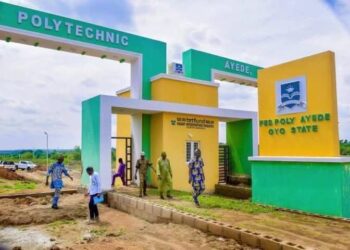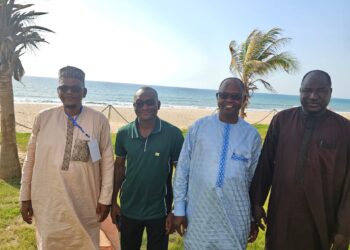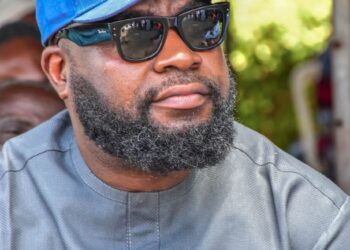By Sayo Àlàgbé
Farming, whether commercial or subsistence, is a necessity in today’s Nigeria, with no exception to gender—both men and women must embrace it. Without farming, life becomes unsustainable, and starvation could engulf any nation that neglects agricultural practices.

This assertion was made this evening by Professor Ezekiel Ayinde, a scholar from Ladoke Akintola University of Technology, Ogbomoso, during a live broadcast on Ajilete FM 92.1, Gambari, near Ogbomoso. The programme, titled “What Should a Farmer Do Now, During the Dry Season?” focused on the importance of dry-season farming.
Professor Ayinde described dry-season farming as a crucial practice, especially when rainfall is scarce and staple crops like maize, beans, and yams cannot be grown without irrigation. He emphasized that engaging in dry-season farming enables people to cultivate essential vegetables and cash crops, reducing food expenses while also enhancing financial stability.
While addressing the feasibility of dry-season farming, particularly in the absence of rain, he highlighted irrigation management as the key solution. He explained that farmers should invest in efficient irrigation systems, such as drip or sprinkler irrigation, to ensure adequate water supply for crops despite the dry conditions.
Additionally, he advised farmers to adopt soil moisture conservation techniques by using mulching—covering the soil with organic materials—to minimize water evaporation and maintain soil moisture levels. He also stressed the importance of selecting drought-resistant crops, such as millet, sorghum, cassava, and cowpeas, to reduce the risk of crop failure during dry seasons.
On the topic of livestock management during the dry season, Professor Ayinde emphasized that farmers must ensure their animals have access to sufficient water and shade. He also recommended storing dry-season feed, such as hay and silage, in advance to sustain livestock.
Furthermore, he underscored the importance of soil testing to determine nutrient needs and the application of fertilizers to enhance soil fertility and crop yields. He urged farmers to build water reservoirs, ponds, or tanks to collect and store rainwater for irrigation and other farm uses.
When asked about controlling pests and diseases, which tend to spread more rapidly in dry conditions, Professor Ayinde advised farmers to closely monitor their crops and livestock and apply appropriate treatments when necessary.
As the progranme concluded, he encouraged farmers—especially those involved in dry-season farming—to focus on farm maintenance and planning. This includes repairing farm infrastructure, such as irrigation channels and fencing, and preparing for crop rotation in the next planting season.
Professor Ayinde’s insights underscored the vital role of dry-season farming in ensuring food security and economic stability, urging farmers to adopt modern techniques to maximize productivity during the dry months.
You can get every of our news as soon as they drop on WhatsApp ...To get all news updates, Join our WhatsApp Group (Click Here)










